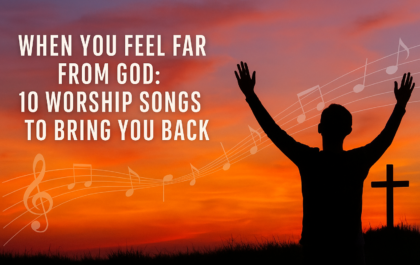Queen Elizabeth II’s funeral took place on September 19th at Westminster Abbey after 10 days of national mourning across the UK. The longest-reigned queen in history died on September 8th at the age of 96. About 2,000 guests in total attended the monarch’s funeral.
The dean of Westminster, the Very Reverend Dr. David Hoyle led the funeral. The service also featured the choirs of Westminster Abbey and His Majesty’s Chapel Royal, St. James’ Palace. The choirs sang songs that marked the main chapters in Queen’s life and talked about her relationships with God.
For example, the second hymn sung during the service was “The Lord is my Shepherd”. The song was apparently one of Elizabeth II’s favorites, though she never confirmed it. “The Lord is my Shepherd” has lyrics from Psalm 23, and it was first sung at Elizabeth II’s wedding to Prince Philip in 1947.
Another notable song was “O Taste and See How Gracious the Lord Is”. The piece is Psalm 34:8 set to music by R. Vaughan Williams. The composer created the song for the Queen’s Coronation in 1953.
After “O Taste and See”, the choir sang “Who Shall Separate Us?” also composed for the queen’s funeral. Scottish composer James MacMillan composed the song and took words from Romans 8 for it. MacMillan shared on Twitter how honored he was to receive an invitation to write the song.
I was deeply honoured to be invited to write a new anthem 'Who Shall Separate Us?' for the funeral of Her Majesty Queen Elizabeth II. She was a constant presence in my life and an inspiration to countless millions across the globe. https://t.co/opjUnumI6f
— James MacMillan (@jamesmacm) September 18, 2022
More spiritual motives at the funeral of the Queen
At the beginning of the funeral, the Choir of Westminster Abbey sang the five Sentences. They are lines of scripture set to music in the XVII century. the Choir of the Chapel Royal, St James’ Palace joined the Choir of Westminster Abbey to sing the final two Sentences together.
While the Dean of Westminster gave the bidding and said words of gratitude for the Queen’s “life-long sense of duty and dedication,” the choir sang “The Day Thou Gavest, Lord, Is Ended.” It is a Christian hymn composed by the Anglican hymnodist Rev John Ellerton in 1870.
The song’s theme focuses on the fellowship of the church, prayers, and praising God. The piece was sung during momentous events in the UK’s history like celebrations for the Diamond Jubilee of Queen Victoria and the Hong Kong handover ceremony.
Then, there was a hymn titled “Like as the Hart” which included Psalm 42. Judith Weir, the master of the king’s music, composed the song, especially for the queen’s funeral. Buckingham Palace representatives explained the source of inspiration for the piece was the late monarch’s faith:
The piece, inspired by Her Majesty’s unwavering Christian faith, is a setting of Psalm 42 to music and will be sung unaccompanied.
God Save the King has a spiritual source of inspiration
At the end of the service, attendees sang the British national anthem “God Save the King,” The song also has a religious theme. The first line appears several times in the King James Version of the Bible. For example, the same line is in 1 Samuel 10:24:
And Samuel said to all the people, See ye him whom the Lord hath chosen, that there is none like him among all the people? And all the people shouted, and said, God save the king.
A similar mention from 1 Kings 1:39 was a source of inspiration for the previous British anthem “Zadok the Priest”. It has the following lyrics:
Zadok the priest and Nathan the prophet anointed Solomon king.
And all the people rejoiced and said:
God save the King! Long live the King! God save the King!
May the King live for ever. Amen. Hallelujah.
Words from “Zadok the Priest” was sung during coronations from 973 until “God Save the King” was adopted in 1745.
Related posts
You Might Also Be Interested In...
When You Feel Far From God: 10 Worship Songs to Bring You Back
We all experience moments when God feels distant. Sometimes it’s the weight of life, other times it’s disappointment, grief, or spiritual exhaustion. The good news? God hasn’t moved. And often, one of the best ways to draw close again is through worship. Music has a…
LoveWorld’s Gospel Praise Night with Pastor Chris
There are moments when time seems to pause, and heaven draws near. One of those moments is Praise Night with LoveWorld singers and Pastor Chris Oyakhilome. On Sunday, May 25, 2025, millions across the globe will tune in for the 23rd edition of this extraordinary…



